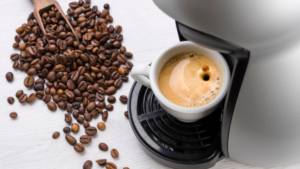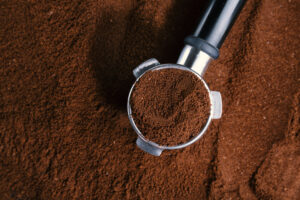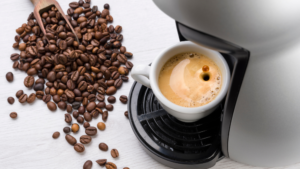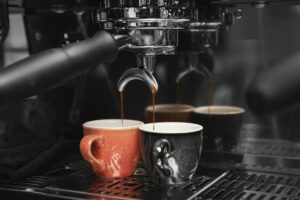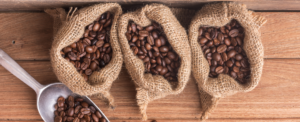I’ll never forget the moment I realised water was ruining my coffee. After upgrading to specialty beans, a proper grinder, and even investing in a fancy espresso machine, something still wasn’t right. My coffee tasted… flat. A bit chemical. Nothing like the vibrant cups I enjoyed at my local café.
The culprit? The water coming from my tap.
Look, I know talking about water sounds boring when we could be discussing exotic bean origins or debating the merits of different brewing methods. But here’s the thing: water makes up more than 98% of your coffee. Change your water, change your coffee, sometimes dramatically.
What’s Actually in Your Water?
Your tap water isn’t just H2O. It’s carrying minerals, chemicals, and various compounds that affect how your coffee tastes:
Calcium and magnesium: These minerals give water its “hardness.” Some hardness is good, it helps extract those lovely flavours from your beans. Too much, though, and your coffee tastes chalky and dull.
Chlorine or chloramine: Added to municipal water to kill bacteria. Great for public health, terrible for your flat white. Even at safe levels, these chemicals can make your coffee taste like it was brewed in a swimming pool.
Fluoride: Most Australian water supplies contain added fluoride for dental health. While fluoride doesn’t typically impact coffee flavour directly, some coffee enthusiasts prefer to filter it out along with other additives for the purest possible brewing water.
Bicarbonate: Affects your water’s pH balance. Too much bicarbonate buffers acidity, meaning those bright, fruity notes in your light roast disappear entirely.
All this stuff in my tap water was sabotaging my coffee daily. After months of frustration, I finally installed a whole house water filter system and honestly, it was like tasting coffee properly for the first time. Not just for brewing either, everything from tea to ice cubes suddenly tasted cleaner.
The Taste Test That Changed Everything
Still sceptical? I was too, until I conducted a simple experiment. I brewed identical coffee four ways:
- Using my unfiltered tap water
- Using basic filtered water
- Using bottled spring water
- Using “coffee-optimised” water (more on this later)
The differences weren’t subtle, they were shocking. The cup made with unfiltered tap water tasted dull and slightly metallic. The basic filtered water was better but still lacked vibrancy. The spring water produced a decent cup.
But that optimised water? It was like someone had turned on the lights. Suddenly I could taste all those flavour notes mentioned on the coffee bag, the berry sweetness, the chocolate finish, elements that had been hiding all along.
What Makes “Good” Coffee Water?
The coffee industry actually has standards for this. The Specialty Coffee Association recommends water with:
- A neutral pH (around 7)
- Moderate mineral content (total dissolved solids between 75-250 ppm)
- Some calcium hardness (50-175 ppm)
- No chlorine or chloramine
This sweet spot helps extract the good flavours while leaving behind the nasty bitter compounds.
Water Problems I Never Knew I Had
Until I got obsessed with water quality, I had no idea what was coming out of my tap. Here are the issues I discovered (which are surprisingly common in homes across Australia):
Rock-Hard Water
If your kettle looks like a cave formation inside, you’ve got hard water. This mineral-heavy water:
- Makes coffee taste flat and chalky
- Kills the acidity in bright, fruity coffees
- Builds up scale in your expensive equipment
- Often makes coffee taste generic regardless of its origin
Super-Soft Water
At the other extreme, water with almost no minerals:
- Makes coffee taste sour and thin
- Doesn’t extract enough of the good stuff
- Creates weak, underwhelming brews
- Leaves you wondering why you spent so much on those fancy beans
Chlorine City
If your water smells like a public pool (even faintly):
- Your coffee will have a medicinal aftertaste
- Delicate floral or fruit notes disappear
- The aroma of your coffee will be compromised
- You’ll never achieve café-quality results
Simple Solutions Anyone Can Try
You don’t need a chemistry degree to improve your coffee water. Here are some approaches that actually work:
For Most People: Quality Carbon Filtration
A good carbon filter can:
- Remove chlorine and chloramine
- Reduce some minerals if water is very hard
- Improve the overall taste
- Be affordable and simple to maintain
Just be aware that basic pitcher filters might not do enough if your water is particularly problematic.
For the Serious Coffee Lover: Specialised Systems
If you’re already investing in good coffee gear:
- Consider a dedicated under-counter filter for your coffee setup
- Look for systems designed specifically for coffee brewing
- Think about remineralisation options if you use reverse osmosis
For the Coffee Obsessed: Water Recipes
Yes, some coffee folks (myself included) actually “make” water:
- Starting with purified water
- Adding precise mineral concentrates
- Creating consistent brewing water every time
It sounds mad until you taste the difference. Then it seems perfectly reasonable.
Quick Fixes When You’re Stuck with Bad Water
No filtration system handy? Try these workarounds:
For chlorinated water: Fill a jug and leave it uncovered overnight. Chlorine will evaporate (though chloramine won’t).
For very hard water: Blend your tap water with some distilled or filtered water to dilute mineral content.
For very soft water: A tiny pinch of mineral-rich salt (like Himalayan pink salt) can improve extraction. Use sparingly!
The emergency solution: When all else fails, good bottled spring water (not distilled) can make a decent cup.
It’s Not Just About Taste
Proper water also protects your coffee equipment. I’ve seen $3,000 espresso machines destroyed by scale buildup. Replacing a boiler costs hundreds, making that water filter seem like a bargain.
Most coffee equipment warranties won’t cover damage from inappropriate water. When the repair technician sees inside your scaled-up machine, they know immediately.
Finding Your Perfect Water Balance
Water quality isn’t one-size-fits-all. The “perfect” water depends partly on:
Your coffee preference: Darker roasts can stand up to harder water; lighter roasts often need softer water to shine.
Your brewing method: Espresso machines are sensitive to scale buildup; cold brew is more forgiving of water variations.
Your local water: Water quality varies dramatically by location, even within the same city.
The best approach is to start by testing your water (inexpensive test strips work fine) to understand what you’re dealing with. Then you can find the most effective solution.
For those serious about both their coffee and overall water quality, a whole house water filter system can be life-changing. I installed one myself last year, and the difference was immediately noticeable, not just in my coffee, but in everything from shower water to ice cubes.
The Bottom Line
Here’s what I tell everyone who asks me about improving their coffee: fix your water before you spend another dollar on expensive beans or equipment.
It’s the silent factor that can either elevate or ruin your coffee experience. And unlike some aspects of coffee brewing that require skill or practice, getting good water is relatively straightforward once you know what’s in your tap.
After all, great coffee is about bringing the best out of each bean, and that starts with the water that unlocks its potential. Your perfect cup might be just a filter away.


